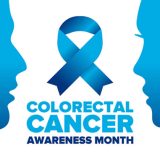

For the last 40 years or so, the powers that be in American health have insisted that the way to improve the overall health picture in America was to shift the dietary intake away from fats and replace those calories with carbohydrates. This began with flawed research studies that were governed by the preconception that saturated fats increase total cholesterol and the “calorie-dense” nature of fats lead directly to increased incidence of obesity. The NIH, AHA, USDA and every other mainstream acronym involved in health in America signed on to this concept and have programmed the American consciousness to think “low fat” in everything regarding diet.
Just one little glitch occurred in this theory – the rates of obesity, diabetes and metabolic syndrome have risen to epidemic proportions and cardiovascular disease has not decreased. Despite the obvious disconnect between reality and the institutional dogma, the party-line continues to be “low fat, high carb.” Here’s an interesting timeline:
- 1977 – Initial Dietary Goals for Americans report recommends high carbohydrate/low fat diet.
- 1984 – NIH issues advisory for Americans to restrict fat intake.
- 1988 – US Surgeon General declares dietary fat to be the single most unwholesome component of the American diet.
- 1988 – President of the American Heart Association states that “if everyone went along, we will have atherosclerosis conquered by 2000.”
- US Surgeon General’s office begins initiative to write a definitive report on dietary fat and heart disease.
- 1999 – The Surgeon General’s office quietly abandons its project, after 11 years of failing to demonstrate a connection between dietary fat and heart disease.
- 1976 to present – multiple studies, including Nurses Health Studies I, II & III point to carbohydrates, and not fat, as the dietary element most involved in promoting the metabolic changes that lead to heart disease.
- 2010 – Dietary Guidelines Advisory Commission Report recommends increased whole grains and fiber and continued reductions in saturated fats, salt and animal protein as essential for cardiovascular health.
Despite having no scientifically supportable basis upon which to continue these recommendations, the “authorities” on health continue to make recommendations that fly in the face of the epidemiological evidence. Others though were paying attention and, in the last 20 years, many research studies have been published that serve to debunk the myth of saturated fats and heart disease. Here are some highlights:
- A study published in the American Journal of Clinical Nutrition determines that there is no demonstrable association between saturated fat and heart disease. The study found that saturated fat in the diet increased HDL and reduced sdLDL (more atherogenic) cholesterol and was a poor predictor of cardiac risk.
- The New England Journal of Medicine published a study that evaluated three diets: the low fat/calorie restricted (AHA) diet, the Mediterranean diet (calorie restricted) and a low carb/unrestricted diet. The low carb/unrestricted diet was shown to result in the most weight loss (twice that of the AHA diet) and had the best HDL to LDL ratio.
- A Journal of the American Medical Association study found that a diet high in carbohydrates had a 79% greater chance of developing cardiovascular disease. The study explained the results as due to glucose and insulin imbalances causing fat production, inflammation, and insulin resistance caused by the high carb diet.
- The Harvard University School of Public Health studies (Nurses Health Studies I, II, and III and the Health Professionals Follow-up Study) have followed over 300,000 Americans over 30 years and found no relationship between total dietary fat; that monounsaturated fats like olive oil reduce the risk and that polyunsaturated trans fatty acids like margarine (the common replacement when avoiding saturated fats) are unhealthy.
Meanwhile, researchers have been examining the negative effects of elevated blood sugar levels that result from a high carbohydrate/low fat diet. The nickel tour of the research studies that have examined the issue displays the common finding that chronically elevated blood sugar levels increase the risk of obesity, diabetes and heart disease. In the almost 40 years since the 1977 dietary guidelines were issued by the US government, obesity rates have doubled and diabetes has tripled. Other studies draw a correlation between high blood sugar and elevated cancer risk.
Newer studies are revealing the metabolic pathway that leads from sugar to heart disease: elevated blood sugar leads to increased concentrations of glucose-6-phosphate (GSP), that create stress on the heart, which alters the proteins in the heart muscle leading to heart failure. Other studies are showing the link between “industrially synthesized” trans fatty acids and the higher risk of heart disease, diabetes, high LDL and low HDL cholesterols.
These recent findings are important to note, because in the multi-billion dollar low fat food industry, the two common ingredients used to give these foods an appealing taste and texture are sugar and trans fatty acids. That 1-2 punch to the metabolism adds up to a death blow to the heart.
The long and short of this article is that, as the government clings to its misapprehensions about fats, carbohydrates and heart health – it is up to you to practice common sense in in choosing how to live and eat. My recommendations:
- Eat mostly fresh, whole foods cooked at home.
- Choose balanced proportions of proteins, fats and carbohydrates.
- Exercise regularly.
- Practice moderation in all things, especially food choices.
- Promote cardiovascular health and blood sugar balance using well-designed supplements that support normal metabolic function.
- Next time you take a bite of that buttered dinner roll, know that the “butter is actually the more healthful component.” ~David Ludwig, Director of Obesity Program at Children’s Hospital Boston




